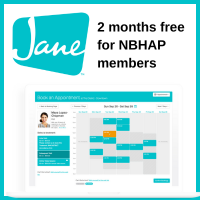Legislative Alert: Pennsylvania Legislation on Recovery Houses Licensure & Certification
March 15, 2018
At the end of 2017, Pennsylvania passed a law mandating the licensure or certification of certain drug and alcohol recovery houses. Licensure or certification will be required for all recovery houses or sober living facilities that receive funds or referrals from federal or state agencies, including from the Pennsylvania Department of Drug and Alcohol Programs (DDAP), which is the state agency that currently issues licenses to substance abuse treatment facilities.
While the law goes into effect June 18, 2018, DDAP has two years from that date to issue final regulations governing the licensure or certification process. DDAP representatives have indicated they hope to fast-track the process of drafting new regulations so that the new policies are rolled out far in advance of the 2020 deadline. Recovery houses in existence when the law becomes effective will be deemed licensed or certified after showing compliance with the forthcoming regulations, paying required fees, and passing any necessary DDAP inspections.
Legislators provided some guidance on its expectations for the regulations to be promulgated by DDAP. Among the required regulations, the law calls for the following policies:
- A policy that ensures that residents are informed of all drug and alcohol recovery house rules, residency requirements, and lease agreements;
- Policies and procedures for management of all funds received and expended by the drug and alcohol recovery house in accordance with standard accounting practices, including funds received from or managed on behalf of residents;
- Policies regarding criminal background checks for operators and employees of the recovery house;
- A policy that no recovery house owner, employee, house officer, or related individual shall directly or indirectly solicit or accept a commission, fee, or anything of monetary or material value from residents, other related individuals, third party entities, or referral sources, beyond specified rent established in writing at the time of residency;
- Policies and procedures addressing the safety and protection of residents;
- Policies that promote recovery by requiring resident participation in treatment, self-help groups, or other recovery supports;
- Policies requiring abstinence from alcohol and illicit drugs;
- Procedures regarding appropriate use and security of medication;
- Maintenance of the property in which the recovery house is located, including, but not limited to, the installation of functioning smoke detectors, carbon monoxide detectors, and fire extinguishers and compliance with local fire codes;
- Policies and procedures which prohibit an owner, house administrator, or employee of a recovery house from requiring a resident to sign any document relinquishing the resident’s public assistance benefits;
- Policies and procedures for managing complaints about licensed or certified recovery houses; and
- Requirements for notification of a family member or other emergency contact designated by the resident under certain circumstances, including death due to an overdose.
DDAP representatives are unsure of how the final regulations will look at this moment and will be seeking input from stakeholders during the drafting process. One DDAP representative speculated that the pending regulations may look to the physical plant standards in place for residential treatment facilities for guidance. DDAP will be issuing communications to solicit input from stakeholders in the near future on what those regulations should look like and has set up a short informational webpage about the new law.
AATA will continue to monitor the progress and will update members on any important legislative updates. For more information on the current laws governing treatment programs and sober living facilities in Pennsylvania, please visit our Frequently Asked Questions page.

A national membership association that provides education and advocacy for those in the behavioral health and addiction treatment industries.
We are the leading and unifying voice of addiction-focused treatment programs.



